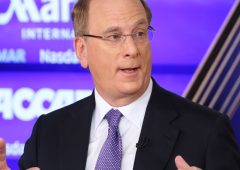Bitcoin Struggles in Q1: Will Accumulation Signal a Comeback?
01.04.2025 19:00 2 min. read Alexander Stefanov
Bitcoin’s start to 2025 has been rough, marking its worst first quarter in seven years.
The cryptocurrency saw its value drop by about 11.82%, falling from $106,000 in late 2024 to around $80,200 by the end of March. This downturn, attributed to economic challenges and new tariff policies from U.S. President Donald Trump, contrasts sharply with the 68% surge in the same period last year.
Despite the slump, some large investors are doubling down. Data from Santiment shows an increase in whale addresses holding between 1,000 and 10,000 BTC, reaching the highest level since December 2024.
This suggests growing confidence among major holders. At the same time, trading activity among short-term BTC holders has hit a low not seen since mid-2021, indicating that recent buyers are holding rather than selling.
Additionally, Bitcoin’s supply on exchanges has dropped to 7.53%, the lowest since February 2018, signaling that investors may be opting for long-term holding.
Analyst Axel Adler Jr. predicts a consolidation phase over the next couple of months, suggesting that selling pressure has eased.
Fidelity Research also sees potential for a rebound, suggesting that Bitcoin may be entering a phase of renewed momentum, driven by institutional adoption and its role as an inflation hedge. As whales continue accumulating and exchange supply decreases, some experts believe the groundwork is being laid for a recovery.
-
1
Arthur Hayes Sees Trouble Ahead for Bitcoin as Global Tensions Rise
12.06.2025 21:00 2 min. read -
2
Why Michael Saylor Bet on Bitcoin During the COVID Cash Crisis
12.06.2025 19:00 2 min. read -
3
Nasdaq-Listed Mercurity Aims to Join Bitcoin Treasury Trend
13.06.2025 9:00 1 min. read -
4
Whale Leverages $30M on Bitcoin: Is a Parabolic Move Coming?
11.06.2025 21:00 1 min. read -
5
Pakistan Turns Unused Power Into Bitcoin and AI Infrastructure
13.06.2025 22:00 1 min. read
UniCredit to Launch Structured Product Tied to BlackRock’s Spot Bitcoin ETF
European banking giant UniCredit is preparing to offer its professional clients a new investment product linked to BlackRock’s spot Bitcoin ETF (IBIT), according to a report by Bloomberg.
American State Bans Crypto Investments and Payments in Sweeping New Law
Connecticut has officially distanced itself from government adoption of digital assets like Bitcoin. On June 30, Governor Ned Lamont signed House Bill 7082 into law, placing sweeping restrictions on how the state and its agencies can engage with cryptocurrencies.
Strategy Boosts Bitcoin Holdings to 597,325 BTC with Latest Purchase
Bitcoin giant Strategy has added another 4,980 BTC to its reserves in a purchase worth approximately $531.9 million, according to Executive Chairman Michael Saylor.
Veteran Trader Peter Brandt Shares Simple Wealth Strategy with Bitcoin at Its Core
According to renowned market veteran Peter Brandt, trading isn’t the path to prosperity for the vast majority of people.
-
1
Arthur Hayes Sees Trouble Ahead for Bitcoin as Global Tensions Rise
12.06.2025 21:00 2 min. read -
2
Why Michael Saylor Bet on Bitcoin During the COVID Cash Crisis
12.06.2025 19:00 2 min. read -
3
Nasdaq-Listed Mercurity Aims to Join Bitcoin Treasury Trend
13.06.2025 9:00 1 min. read -
4
Whale Leverages $30M on Bitcoin: Is a Parabolic Move Coming?
11.06.2025 21:00 1 min. read -
5
Pakistan Turns Unused Power Into Bitcoin and AI Infrastructure
13.06.2025 22:00 1 min. read


